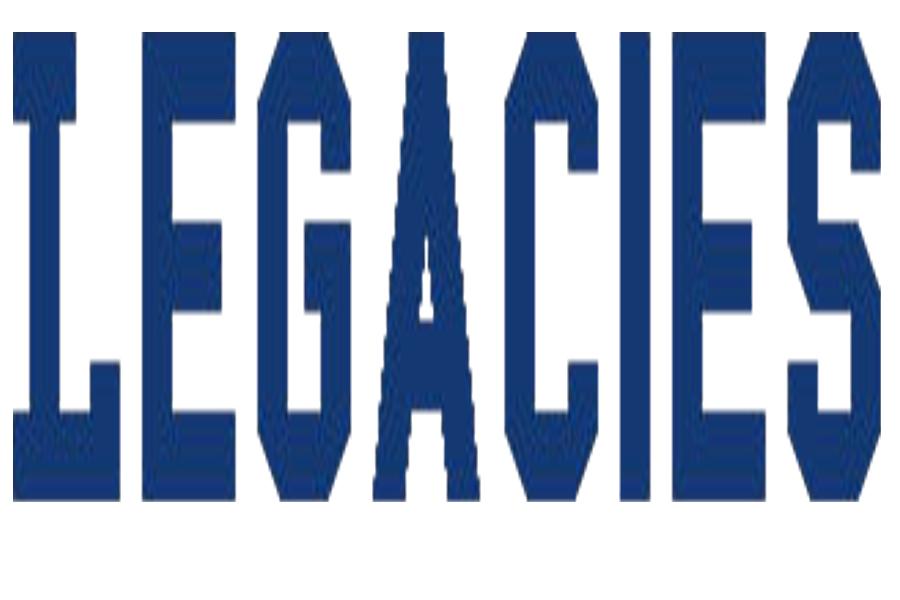College alumni sport their school’s colors, cheer for familiar mascots, and attend reunions, all to maintainin a connection with their alma mater. But for the children of these graduates, the school connection can extend beyond logo wear and nostalgia. It is an unspoken truth that “legacies,” or students whose parents or other relatives attended a college, can gain an edge in applying to that same school.
“People always say to me, ‘You’re so lucky that you’re legacy. That means you’re definitely in’,” said Rusty Schindler ’13, whose parents attended the University of Pennsylvania.
However, this perceived advantage is not easily defined or quantified. Certain schools, like McGill and Caltech, say they do not take legacy status into account. Others seem to weigh it; the question is how heavily?
Some feel that legacy gives no benefits in the admissions game. Charlotte Breig ’12, who now attends Penn, applied to the school early but was deferred. Due to her initial deferral, Breig believes that she did not receive any advantage due to her parents’ Penn diplomas.
Schindler, who doesn’t plan to apply to Penn, also feels that legacy is no longer a significant asset. “I once went to college counselor to see if my chances of getting in would increase from being a legacy, and she basically laughed in my face,” Schindler said. “Penn has no trouble filling their freshman class. They don’t need legacy applicants.”
But according to a 2011 study by Michael Hurwitz, a doctoral student at the Harvard Graduate School of Education, an applicant whose parent attended the college as an undergraduate would have a 45 percent higher chance of being admitted to a school than a student with no family connections.
A 2010 article in the Daily Pennsylvanian, Penn’s student newspaper, cited that 28 percent of legacy applicants were admitted to Penn in 2009 while Penn’s overall admit rate was only 14 percent.
Jake Felman ’11, whose parents both attended the Wharton School of Business at Penn, applied to Penn early. “Everyone indicated that if I decided to apply early decision here, being a legacy would help me,” said Felman, a Penn sophomore. “I definitely benefitted.”
Elaine Schwartz, director of the Staples guidance department, said that legacy policies differ depending on the school. Information about an applicant’s parent’s education is not included on the common application but would be in the supplement, which varies among schools, Schwartz said.
Although palpable benefits are hard to define, at certain schools, legacy applicants receive extra information sessions and tours through the alumni departments. Until this year, Penn offered informational Alumni Advising sessions to legacy applicants through the Penn Alumni Admissions Resource Center (PAARC). But the change has no effect on the actual admissions process, according to Joanne Kahan, President of the Penn Club of Fairfield County.
Deborah Slocum, a guidance counselor at Staples, said thatat some schools, legacy can give a boost to students who are already within the range of admissibility. Schwartz added that legacy status often weighs more when a student applies early decision to a college.
However, qualifications do not fall by the wayside in legacy admissions. Deborah Grabfield, head of a college consulting firm and a former admissions officer, emphasized that in her experience, all admitted students were qualified and admitted with the expectation that they do well and graduate. Legacy was something that would come into play mainly when deciding between equally qualified applicants.
Some students oppose any perks given to legacies. Kevin Coughlin ’13 felt that familial preferences are unfair even when used to consider equally qualified applicants.
“A tie-breaker is the difference between getting into your top choice school and getting rejected,” Coughlin said. “These kids basically have the same GPA, same SAT scores, and are going to say the same things in their supplemental essays. When you take that into consideration, [a legacy advantage] doesn’t seem so harmless anymore.”
“Legacies do make sense for distinguishing between applicants,” said Blythe Lewis ‘13, “but I think there are other ways to make the choice.”
“Just because your parents went to a school doesn’t make you any more eligible,” added Tory Scordato ’13. “Being a legacy doesn’t make you any more qualified to get into the school.”
Richard Kahlenberg, a senior fellow at the Century Foundation, a nonprofit research organization that analyzes social and educational institutions, disagrees with any benefits granted to legacies. “Admissions should be based on merit, not whether or not a parent attended,” Kahlenberg said.
Some students share this perspective. “Getting into a school shouldn’t be based off how much work your parents or grandparents did when they were in college,” said Olivia Stanley ’13.
At the Massachusetts Institute of Technology (MIT), legacies are not given special consideration for this very reason. “MIT as a meritocracy is a central tenet of our culture and philosophy,” said Stuart Schmill, Dean of Admissions at MIT. “Legacy admissions are very counter to that notion.” According to Schmill, most alumni take pride in the absence of legacy preference. Schmill added that MIT’s fundraising seems unaffected despite the absence of legacy preference, although some colleges may be motivated to consider legacy to bolster alumni donations and build a wealthier student body.
Kahlenberg sees this favoritism, which benefits specific socioeconomic groups, as beyond unfair . He views preference towards legacies as a policy that disproportionately benefits an economically prosperous, white demographic. “Preferences are supposed to be related to students overcoming disadvantages,” Kahlenberg said. “Legacy benefits a group that deserves preferences the least.”
An anonymous 2008 Staples graduate who was a double legacy at her Ivy-league college was aware of the stigma that often accompanies this family connection to a school. Despite her success at the university, as evidenced by her award-winning academic work and graduation with honors, the student recalls attempting to keep her legacy status under wraps.
“In my experience, many of my peers, upon learning that I was a legacy, seemed to believe that I had been admitted more on personal connections than qualifications,” she said. “Despite having worked hard through college and graduating summa cum laude, I still felt the sense that people assumed that I was admitted largely because my parents attended.”
Legacy favoritism may be controversial, but it does help a school forge a bond with alumni. Grabfield felt that legacy consideration was a way for colleges to stay connected with graduates. “Colleges like the idea of a family tradition,” added Slocum.
However, alumni do not necessarily expect benefits to be awarded based on a family connection. Diane Lowman, an alumna of Middlebury College and alumni interviewer for the school, didn’t expect any special advantage to be given to her son Dustin, who now attends Middlebury. “I didn’t see [legacy] as a shoo-in,” she said. “I’m aware of alumni kids who applied and didn’t get in.”
Throughout her son’s application process, Lowman was cognizant that Middlebury had to be a good fit for Dustin as individual, not just as the son of an alumni member.
Slocum and Schwartz advised that students only apply to a school if they are genuinely drawn to it.
Admissions officers at Penn, Caltech, Williams, and Harvard declined to comment on legacy admit rates and policies at their schools.














































